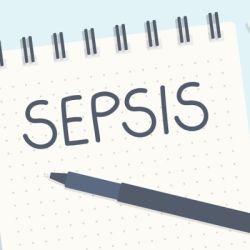A global observational study jointly led by University College London (UCL) has revealed a concerning trend in the effectiveness of antibiotics to treat sepsis in newborn babies. The study, conducted across 19 hospitals in 11 countries and involving over 3,200 infants with sepsis, found a high mortality rate among infants with culture-positive sepsis (nearly 1 in 5 infants). The study is published in PLOS Medicine.
The Global Antibiotic Research and Development Partnership (GARDP) conducted the research in collaboration with the Medical Research Council Clinical Trials Unit at UCL. Other institutions involved in the study included St George's, the University of London (SGUL), Penta - Child Health Research, and the University of Antwerp.
Sepsis, a life-threatening bloodstream infection, affects approximately 3 million infants worldwide each year. Two hundred fourteen thousand newborns, primarily in low- and middle-income countries, die annually from sepsis that has developed antibiotic resistance.
The study included clinicians from hospitals in Bangladesh, Brazil, China, Greece, India, Italy, Kenya, South Africa, Thailand, Vietnam, and Uganda. The findings revealed considerable variation in mortality rates across the 19 hospitals, ranging from 1.6% to 27.3%, with significantly higher rates observed in low- and middle-income countries. Hospitals in low and middle-income countries often face challenges such as a shortage of healthcare staff, beds, and space, resulting in high infection rates. Furthermore, most infections in these settings exhibit antibiotic resistance, leading to dire consequences when antibiotic treatment fails.
The study also revealed a wide variation in treatment approaches, with hospitals employing over 200 different combinations of antibiotics due to the high levels of antibiotic resistance. Physicians frequently resorted to prescribing carbapenems, categorised by the World Health Organization as "Watch" antibiotics, to be reserved for specific indications to preserve their effectiveness. Unfortunately, carbapenems were often the only available antibiotics for treating infections.
The study found that last-line antibiotics were administered to 15% of newborns with neonatal sepsis enrolled in the study. Klebsiella pneumoniae is the most commonly isolated pathogen, typically associated with hospital-acquired infections.
These results have paved the way for a pivotal strategic public health clinical trial called NeoSep1, which aims to identify improved treatments for newborn infections in the face of growing resistance to existing therapies. GARDP, SGUL, and the MRC CTU at UCL will lead the trial conducted at Chris Hani Baragwanath Academic Hospital in Soweto, Johannesburg, Tygerberg Hospital in Cape Town, and Kilifi County Hospital in Kenya. The trial will also explore appropriate formulations and dosages for newborns. From 2024 onwards, the trial will expand to other countries and regions, with a target of enrolling up to 3,000 newborns.
Source: PLOS Medicine
Image Credit: iStock


















